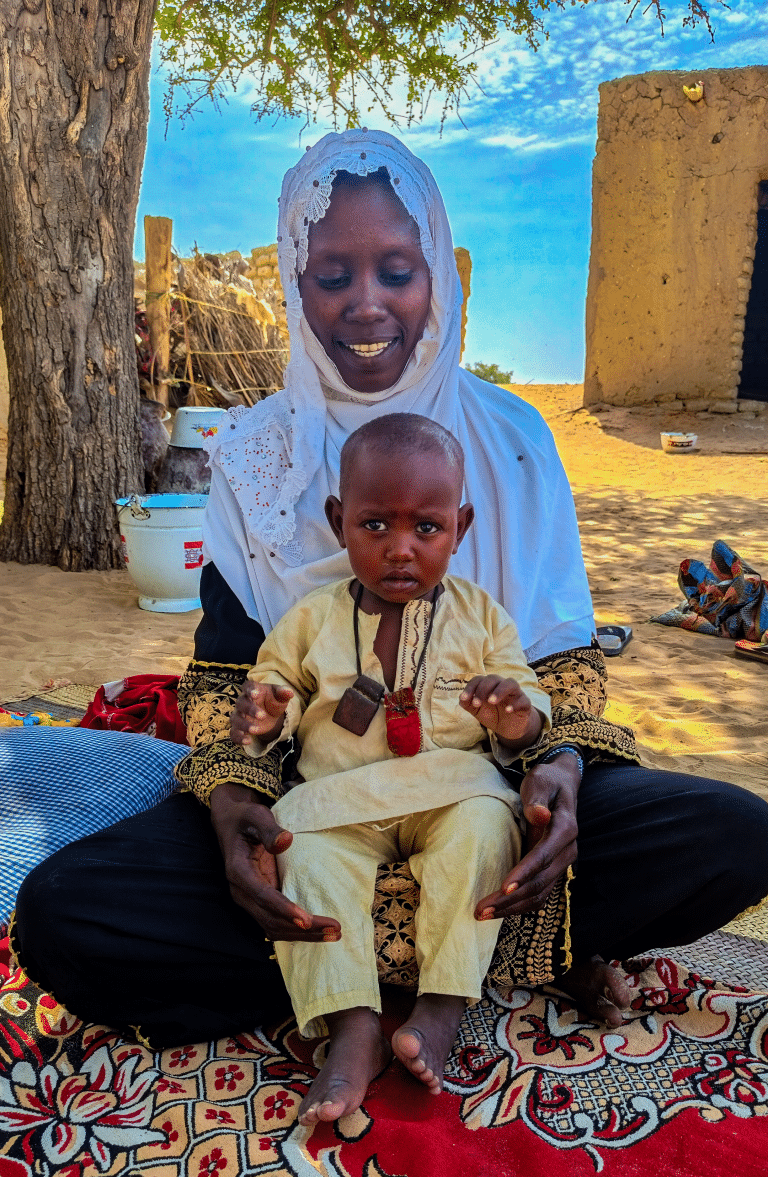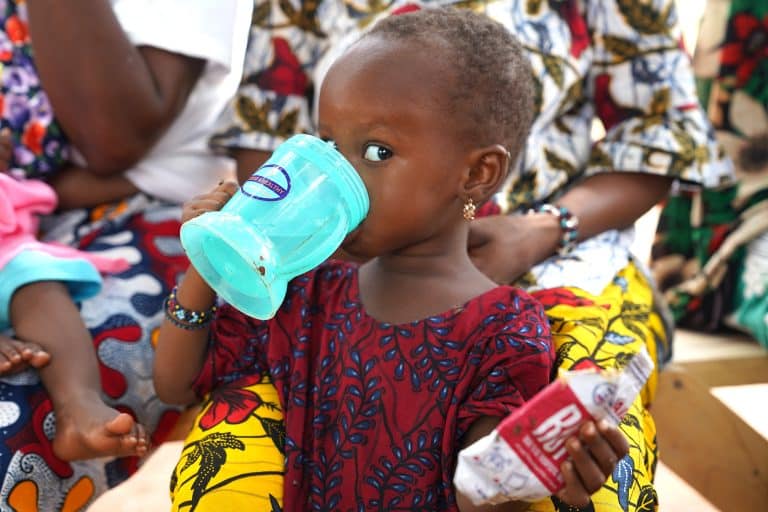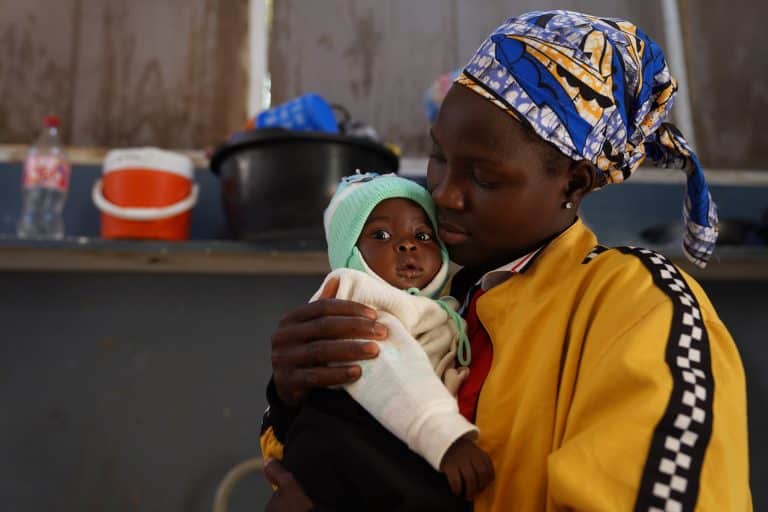DRC’s Kasai region has been plagued for the past several years by conflict and insecurity, which has had a very serious impact on the health system. The current measles outbreak is further exacerbating the already-high medical needs.
“The situation in the Kasai region remains worrying and our teams are working hard to manage the new measles cases arriving at the health facilities we support,” says Dr. Ibrahim Kandian Diallo, head of ALIMA programs.
In 2019, more than 18 million children under the age of five were vaccinated as part of a nationwide campaign conducted by the Ministry of Health, but in some provinces, such as Kasai, immunization coverage remains low, and an estimated 75 percent of reported measles cases involve children under the age of five.
Measles is one of the most contagious diseases and is particularly deadly for children. Symptoms include fever, rash and conjunctivitis. Without treatment, complications can include diarrhea, pneumonia, brain damage and eye damage.
“Children are the main victims of the outbreak,” ALIMA’s former head of programs, Dr. Oumarou Maidadji, said. “Measles is dangerous as it can trigger respiratory or digestive complications, if the symptoms are not managed.” As for treatment, he explains: “It is a week-long treatment, which consists of treating pathologies, which can include diarrhea or lung infections. If the patient is treated at an early stage, measles can be successfully cured,” he said.
From 2018 to 2019, ALIMA teams coordinated a response to the measles outbreak in the Kalonda West health zone, to help support local capacity, due to the destruction of health structures, lack of medication and a lack of quality training of health workers.
Our teams are currently working in the Lubilanji and Citenge health zones. This new area of intervention for ALIMA in the province of Kasai, which has two main focuses:
The first is the medical care of patients suspected of being infected with measles, by making available disease management kits for health workers and patients, including antibiotics. The second is the strengthening of community surveillance of the disease.
In addition, in order to carry out the effective treatment of patients with measles, ALIMA is also training local health workers.
In 2019, our teams supported 28 health centers. In addition to these actions, ALIMA also provides nutritional supplementation for children suffering from measles, as well as the detection and follow-up of children suffering from severe acute malnutrition.
*Photos: Sylvain Cherkaoui / ALIMA





